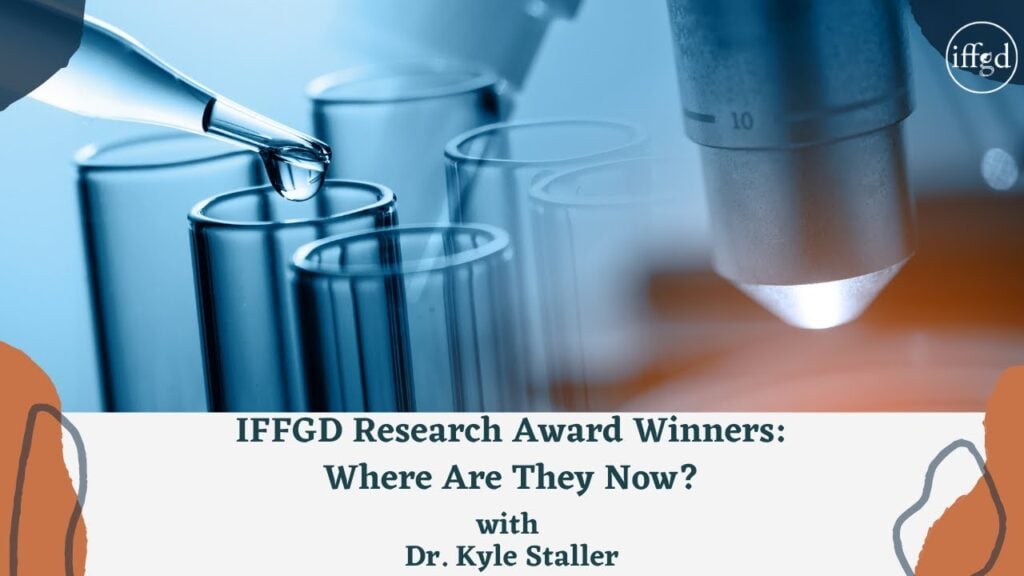Disorders of the Colon and Rectum: 2021 NES

Disorders of the Colon and Rectum – Presented by Dr. Baha Moshiree This video is a part of the 2021 Norton Education Series: 30th Anniversary Event which was broadcast on November 6 & 7, 2021. Warning: Some of the educational videos in this program contain graphic images of the human body related to medical procedures […]
411 How to Qualify for Social Security Benefits
Gastrointestinal (GI) disorders are more common than people think. Even though almost everyone has occasional bouts of GI issues, thousands of people have chronic and severe GI disorders that can make it impossible for them to work. If you have worked in the past but can’t work now because of a GI disorder that you expect to last a year or more, you can file a […]
Mandy’s Personal Story
Mandy’s Personal Story: IBS, GERD, and the Impact of Chronic Illness Hey Guys!At the age of 19 I developed IBS , which was extremely severe for many years. I was then advised to have a hysterectomy by a dr ( as I already had the children I wanted ) this helped a lot. But then […]
Gene’s Personal Story
Gene’s Personal Story: Incontinence I am a 61 year old who was born with Spina Bifida Occulta. I am ambulatory but suffer from the loss of bladder control. Iv had to wear diapers and plastic pants under my clothing since 1959 and it’s difficult sometimes to manage at school or work. Quality made diapers and […]
C’s Personal Story
C’s Personal Story: IBS, Numbness, and Painful Symptoms Hi so for the past few years i thought i was suffering with IBS constipation & then diarrhea where before hand was very regular with toileting Now it has come to the point my bottom/bum cheeks feel numb & painful to touch also my legs all way […]
W. Monaghan’s Personal Story
W. Monaghan’s Personal Story: Incontinence I don’t have a long-winded story. Simply said I wear diapers. Adult diapers. I’ve had some problems. I wrote them off. Clinically it’s urge incontinence. It’s not too pretty on a human level when you wet your pants in public. So diapers. Back to all personal stories
Dr. Kyle Staller – IFFGD Research Award Winners: Where Are They Now?

2020 IFFGD Research Award Recipient Kyle Staller, MD Dr. Kyle Staller’s research interests include clinical and epidemiologic research in neurogastroenterology and motility with a particular interest in chronic constipation, irritable bowel syndrome (IBS), fecal incontinence, and women’s health in functional GI diseases. Dr. Staller is a gastroenterologist and the director of the Gastrointestinal Motility Laboratory at […]
810-Childhood Defecation Disorders: Constipation and Stool Incontinence
The purpose of this publication is to describe the characteristics and treatment for pediatric functional gastrointestinal disorders that prompt parents to bring their child to the doctor for constipation and/or stool incontinence: infant dyschezia, functional constipation (FC), and non-retentive fecal soiling.
310-Fecal Incontinence
Fecal incontinence (FI), commonly referred to as bowel control problems, is the inability to hold a bowel movement until reaching a bathroom. FI also refers to accidental leakage –for example, while passing gas–of solid or liquid stool. This article talks about common causes, symptoms, and treatments for FI.
Reporter’s Guide to Bowel Incontinence
Do you know which group of conditions affects two in five Americans, causes considerable suffering and disability, and costs society over $30 billion annually?
312-Mechanisms of Fecal Incontinence
How is anal sphincter damage during vaginal delivery related to fecal incontinence?
311-Biofeedback, Incontinence, and the Patient’s Perspective
From a presentation at a symposium on Treatment of Bowel, Bladder, and Pelvic Floor Disorders. Bowel or bladder incontinence is a 24 hour, seven day a week challenge. One never escapes it, for many it is even in our dreams. A personal account from the Founder of IFFGD.
